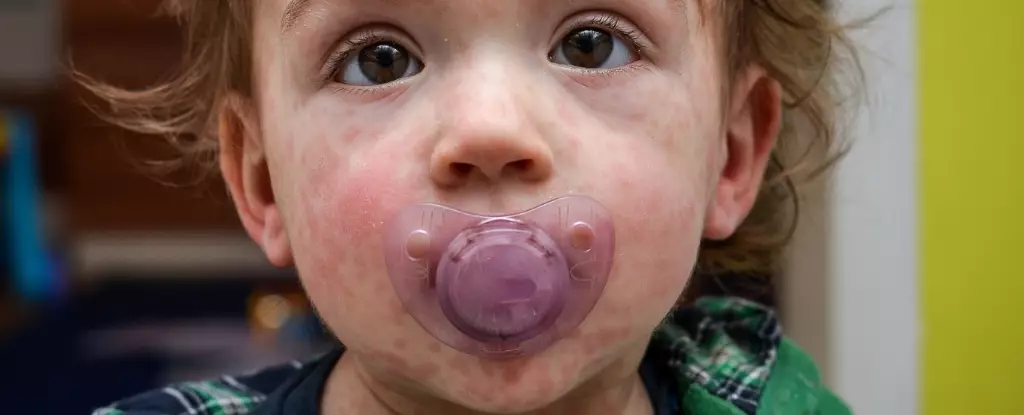In a disheartening revelation, a recent joint report from the World Health Organization (WHO) and the US Centers for Disease Control and Prevention (CDC) indicates that measles cases worldwide surged to over 10 million in 2023—a worrying 20% increase from the previous year. The stark numbers reflect significant gaps in vaccination coverage, exposing vulnerable populations and stoking fears of further outbreaks. Measles is a highly contagious virus, and the alarming rise in cases emphasizes a critical public health issue that demands immediate attention.
The study highlights a fundamental truth: inadequate immunization efforts are at the heart of this crisis. The quantitative goal for measles eradication mandates that at least 95% of the population must receive two doses of the measles/rubella vaccine. However, as of 2023, only 83% of children received their first dose, and a mere 74% obtained their second. These figures not only fall short of target thresholds but also reflect a stagnation in vaccination rates since the global pandemic began, leaving children exposed to a preventable and dangerous disease.
The Human Cost of Vaccine Disparities
Tedros Adhanom Ghebreyesus, the WHO chief, poignantly stated that the measles vaccine has likely saved more lives than any other vaccine over the past half-century. Yet, as we witness this resurgence in measles cases, the continued failure to immunize children adequately threatens to undo decades of progress in disease control. This year’s estimated 107,500 measles-related deaths, primarily affecting children under five, signify a tragic loss that could have been prevented through effective vaccination programs.
While there was an 8% decrease in such fatalities from the previous year, this figure masks the underlying reality of children’s health disparities across different regions. The latest outbreak predominantly impacted those in countries with better healthcare and nutritional standards, highlighting the stark inequalities in global health systems. Such disparities raise urgent questions about the accessibility of vaccines and healthcare services in low-income and conflict-ridden regions.
Geographic Disparities and Outbreak Patterns
The report underscores that the measles resurgence has not been evenly distributed. In 2023, 57 countries reported significant and disruptive outbreaks, a dramatic rise from 36 in the preceding year. With the exception of the Americas, all global regions were affected, with nearly half of the outbreaks occurring in Africa alone. This geographic disparity elucidates the urgent need for targeted intervention, particularly in areas where healthcare is compromised.
Moreover, the WHO’s most recent assessment indicates that while some nations have triumphed over measles, such victories remain fragile against the backdrop of widespread vaccine hesitancy and misinformation. Although 82 countries have successfully eliminated measles, this achievement is overshadowed by the persistence of endemic outbreaks in specific regions, particularly in areas marked by conflict or weak healthcare infrastructure.
As the alarm bells ring, the WHO and CDC have issued a clarion call for urgent action. There is a pressing need for focused efforts to reach every child with two vaccine doses, particularly in the African and Eastern Mediterranean regions, where vaccination rates are perilously low. Health agencies must collaborate with local governments and organizations to enhance accessibility, combat misinformation, and promote the crucial importance of vaccination.
Investment in education and outreach programs is essential. Proper messaging can play a key role in alleviating vaccine hesitancy, and it is imperative to build trust within communities. Additionally, policymakers must prioritize strengthening healthcare systems to ensure that even the most marginalized populations receive timely vaccinations.
The current measles crisis is not merely the responsibility of individual nations; it demands a collective global response. The overarching goal of eliminating measles as an endemic threat by 2030 faces significant challenges, and without sustained commitment from health authorities worldwide, we risk losing hard-won achievements. Ultimately, a united front in the fight against measles will save lives, secure public health, and ensure the well-being of future generations. The time to act is now—without urgent intervention, we may find ourselves wrestling with an even larger public health crisis.

